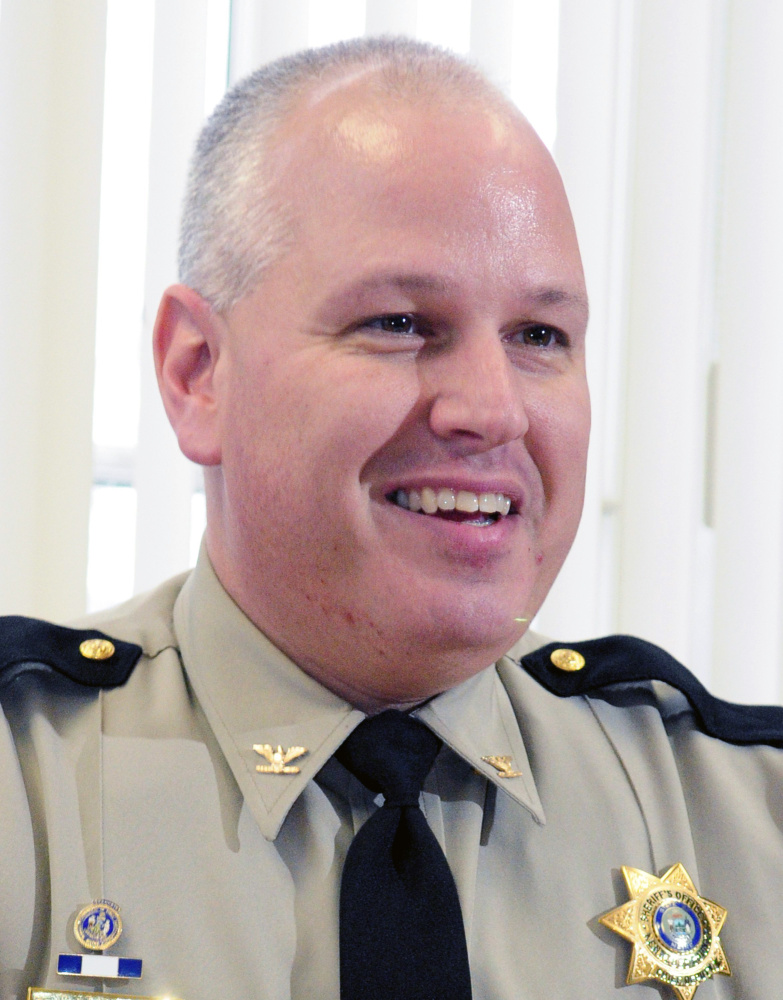PITTSTON — For more than an hour Monday evening, a crowd of about 35 heard from three speakers who are dealing in one way or another with an issue that’s become all too familiar around the state: opiate addiction.
The speakers were Kennebec County Sheriff Ryan Reardon, clinical psychologist Frederick White and substance abuse prevention coordinator Holly Kiidli.
But while all three agreed that stemming the tide of addiction will require considerably more treatment opportunities than are now available to opiate users in Maine, when it came time for those in the audience to speak, the few who did were mostly concerned with the law enforcement piece of the equation.
One woman voiced her frustration about a man from New York she had read about in the newspaper who was charged with aggravated drug trafficking and was made to pay a $400 fine.
The punishment seemed too light for the crime, she argued.
Her frustration was echoed by Pittston Selectman Greg Lumbert, who is also a deputy with the Hancock County Sheriff’s Office and a constable for the town of Randolph.
Lumbert organized the Tuesday night forum, which followed others that have been held across the state and county. Earlier this year, he ran for the selectboard in part to draw more awareness to the issue of drugs and addiction.
“I feel there’s a big need for the recognition of how to control this problem. We’re not going to defeat this by laying down. To defeat this you’ve got to keep fighting, no matter how hard it gets. You’ve got to keep fighting,” Lumbert said.
To that end, Lumbert said, he testified before state lawmakers this session for a bill that created tougher penalties for individuals crossing into Maine with the intent to distribute drugs. The bill ultimately passed.
“I’ve been in law enforcement since 1983. This stuff isn’t new to me,” Lumbert said. “Let’s face it: Opiates aren’t growing in Maine. They’re like bananas. That’s the example I gave. How do bananas get here? Until you stop those bananas coming, you’re going to have a problem.”
Everyone from lawyers to police officers to psychologists agree that preventing further drug overdoses will require more than just arrests.
It’s become a common point of emphasis by Reardon and others in the law enforcement community.
As Reardon pointed out Monday, the Augusta Police Department has done a “soft launch” of a program that matches willing drug users with recovery coaches and directs them to treatment opportunities.
Reardon said the sheriff’s office is now working to start its own “angel program,” as such approaches are known.
Indeed, the demand for heroin and other drugs in Maine is clear and catastrophic.
Statewide, drug overdose deaths increased by 31 percent in 2015, reaching a new high of 272 fatalities that was fueled by a near doubling of heroin deaths, according to data released earlier this year by the attorney general’s office. There were 107 deaths from heroin compared to 57 heroin overdoses the previous year.
In 2015, Kennebec County had 33 overdose deaths, up 65 percent from 20 in 2014.
But while few dispute the need to get drug users into treatment, the Monday night forum in Pittston was a reminder that plenty are still frustrated about who is bringing the drugs here in the first place.
Charles Eichacker — 621-5642
Twitter: @ceichacker
Send questions/comments to the editors.




Success. Please wait for the page to reload. If the page does not reload within 5 seconds, please refresh the page.
Enter your email and password to access comments.
Hi, to comment on stories you must . This profile is in addition to your subscription and website login.
Already have a commenting profile? .
Invalid username/password.
Please check your email to confirm and complete your registration.
Only subscribers are eligible to post comments. Please subscribe or login first for digital access. Here’s why.
Use the form below to reset your password. When you've submitted your account email, we will send an email with a reset code.